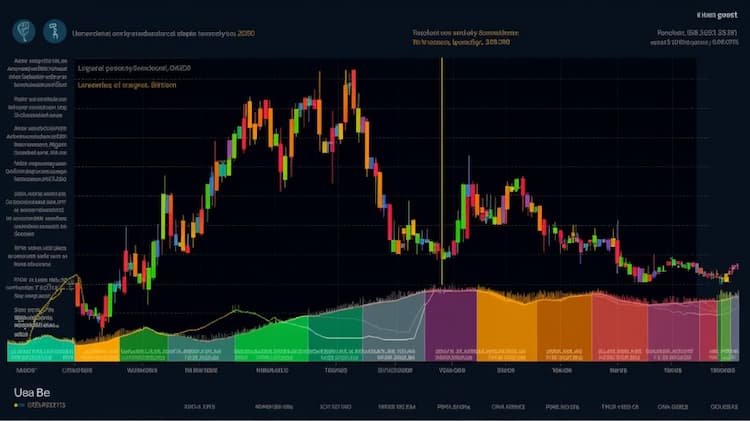
BND Vs JNK: Tracking and Exposure
Exchange-Traded Funds (ETFs) have transformed the investment landscape, offering investors exposure to a wide range of sectors and asset classes. In this article, we will conduct an in-depth comparison between two prominent ETFs: BND (Vanguard Total Bond Market ETF) and JNK (SPDR Bloomberg Barclays High Yield Bond ETF). We will delve into essential aspects, including ETF tickers, full names, issuers, sectors, top holdings, capitalization, strategy, tracking, and exposure.
BND Vs JNK: Overview
BND and JNK are two ETFs that cater to distinct segments of the fixed-income market. BND, the Vanguard Total Bond Market ETF, is designed to mirror the performance of the entire U.S. investment-grade bond market. On the other hand, JNK, the SPDR Bloomberg Barclays High Yield Bond ETF, focuses on high-yield corporate bonds, also known as junk bonds. These differing investment objectives lead to varying levels of risk and potential returns, which we will explore in further detail.
BND Vs JNK: Sectors and Top Holdings
The BND ETF provides exposure to a diverse array of bond sectors, including U.S. Treasury bonds, corporate bonds, mortgage-backed securities, and more. Its top holdings may consist of U.S. government bonds and high-quality corporate debt. In contrast, JNK primarily invests in lower-rated corporate bonds, seeking higher yields. This emphasis on high-yield bonds introduces a greater level of credit risk compared to BND's more conservative portfolio composition.
 BND overlap BND VS JNK
BND overlap BND VS JNK
BND Vs JNK: Capitalization and Strategy
Vanguard's BND boasts a substantial asset under management (AUM), indicating its popularity among investors seeking broad bond market exposure. Its investment strategy involves tracking the performance of the Bloomberg Barclays U.S. Aggregate Float Adjusted Index, which includes a wide range of investment-grade bonds. On the other hand, JNK targets the Bloomberg Barclays High Yield Very Liquid Index, composed of below-investment-grade corporate bonds. JNK's strategy aims to capture the higher yields associated with these riskier bonds.
BND Vs JNK: Tracking and Exposure
BND offers investors exposure to the entire U.S. bond market, enabling them to capture the overall trends and performance of fixed-income securities. This ETF is well-suited for investors seeking a stable source of income and capital preservation. JNK's focus on high-yield bonds exposes investors to higher coupon payments, but also to heightened credit risk. The tracking methodologies of these two ETFs diverge significantly due to their distinct investment objectives and underlying indices.
Conclusion
BND and JNK represent different approaches to fixed-income investing, catering to varying risk appetites and income needs. To gain deeper insights into their holdings, correlations, overlaps, and other critical aspects, investors can turn to ETF Insider. This user-friendly app offers a wealth of information about these and other financial instruments, empowering investors to make more informed decisions. However, it's important to note that this article does not provide any investment advisory services.
In conclusion, understanding the nuances of different ETFs, such as BND and JNK, is essential for constructing a well-diversified investment portfolio. Each ETF serves a specific purpose within the fixed-income landscape, catering to investors with different risk tolerances and financial goals. As you navigate the world of ETFs and finance, remember that knowledge and research are your best allies in making sound investment choices.
Disclaimer: This article is for informational purposes only and does not offer any investment advisory services. It is crucial to conduct thorough research and consult with financial professionals before making any investment decisions.
https://investor.vanguard.com/home BND
ETF issuer https://investor.vanguard.com/investment-products/etfs/profile/bnd BND ETF official page
BND quote and analysis
Discover the top holdings, correlations, and overlaps of ETFs using our visualization tool.
Our app allows you to build and track your portfolio.
To learn more about the BND Vanguard Total Bond Market ETF, access our dedicated page now.
FAQ
Why is BND better than JNK?
BND may be considered better than JNK for some investors due to its specific focus, offering diversification.
Does JNK beat BND?
JNK's performance relative to BND will vary over time, depending on market conditions.
Should I invest in BND or JNK?
The choice between BND and JNK should align with your investment goals, risk tolerance, and desired exposure.
Are BND and JNK good investments?
Both BND and JNK can be suitable investments depending on individual investment strategies, goals, and risk profiles.
What is the correlation between BND and JNK?
The correlation between BND and JNK can vary over time, reflecting differences in performance.





